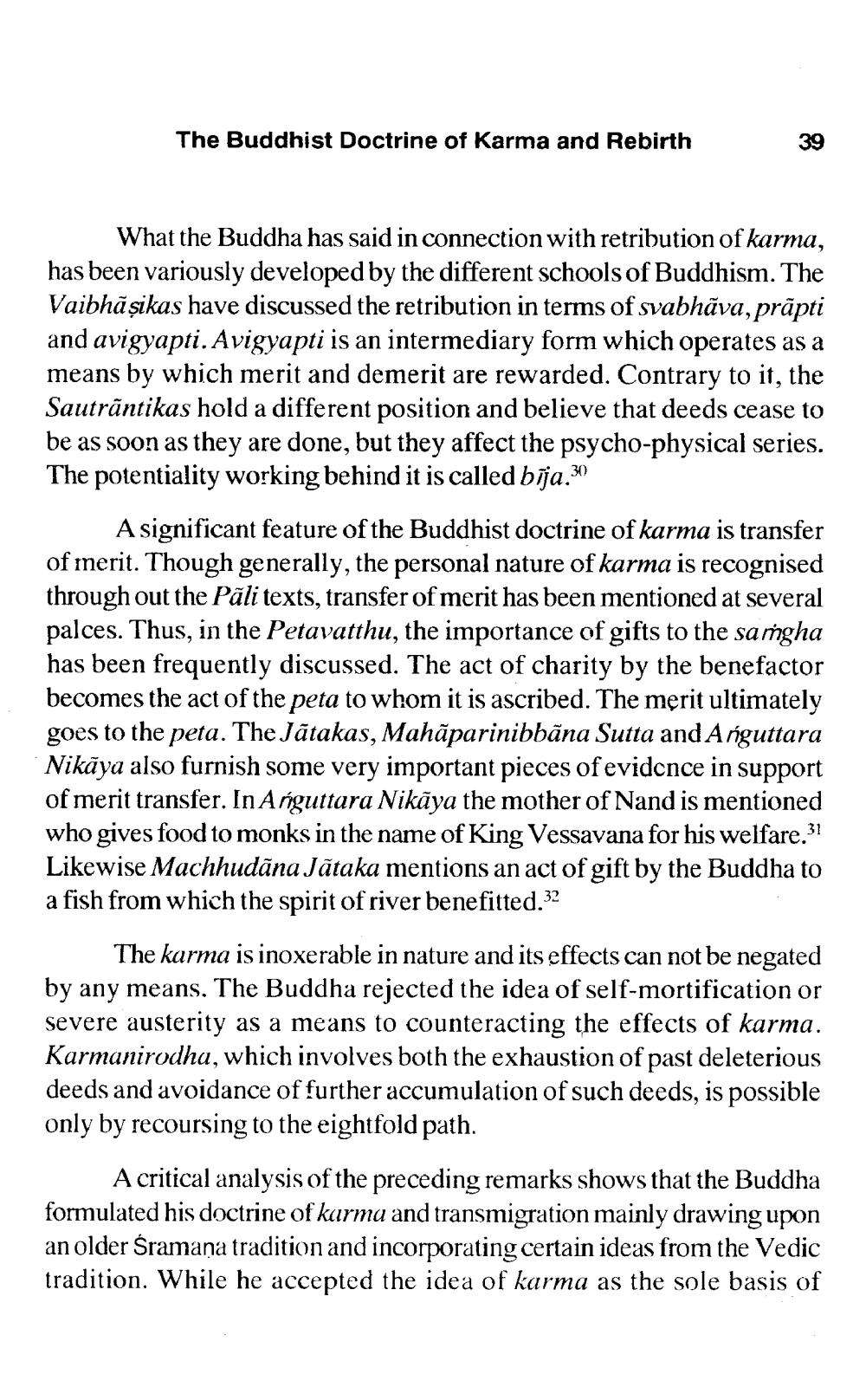________________
The Buddhist Doctrine of Karma and Rebirth
What the Buddha has said in connection with retribution of karma, has been variously developed by the different schools of Buddhism. The Vaibhăşikas have discussed the retribution in terms of svabhāva, prāpti and avigyapti. Avigyapti is an intermediary form which operates as a means by which merit and demerit are rewarded. Contrary to it, the Sautrāntikas hold a different position and believe that deeds cease to be as soon as they are done, but they affect the psycho-physical series. The potentiality working behind it is called bīja.30
A significant feature of the Buddhist doctrine of karma is transfer of merit. Though generally, the personal nature of karma is recognised through out the Pāli texts, transfer of merit has been mentioned at several palces. Thus, in the Petavatthu, the importance of gifts to the samgha has been frequently discussed. The act of charity by the benefactor becomes the act of the peta to whom it is ascribed. The merit ultimately goes to the peta. The Jātakas, Mahāparinibbāna Sutta and Anguttara Nikāya also furnish some very important pieces of evidence in support of merit transfer. In Arguttara Nikāya the mother of Nand is mentioned who gives food to monks in the name of King Vessavana for his welfare.31 Likewise Machhudāna Jātaka mentions an act of gift by the Buddha to a fish from which the spirit of river benefitted.32
The karma is inoxerable in nature and its effects can not be negated by any means. The Buddha rejected the idea of self-mortification or severe austerity as a means to counteracting the effects of karma. Karmanirodha, which involves both the exhaustion of past deleterious deeds and avoidance of further accumulation of such deeds, is possible only by recoursing to the eightfold path.
A critical analysis of the preceding remarks shows that the Buddha formulated his doctrine of karma and transmigration mainly drawing upon an older Śramaņa tradition and incorporating certain ideas from the Vedic tradition. While he accepted the idea of karma as the sole basis of




